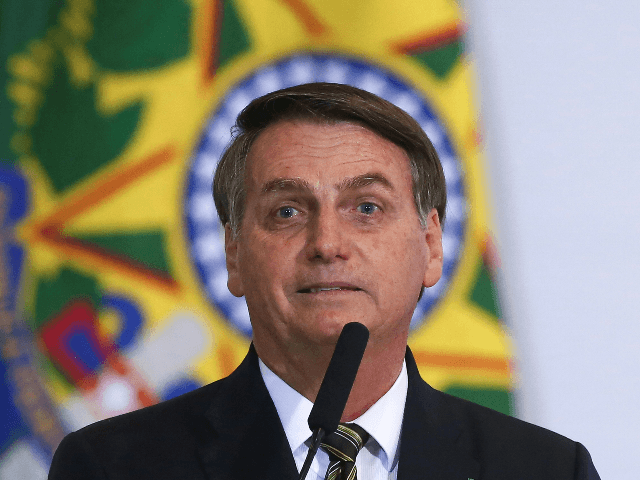The government of Brazilian President Jair Bolsonaro launched a campaign this week aimed at encouraging young people to refrain from sex as part of an effort to bring down the rate of teenage pregnancies.
The campaign, jointly run by the Ministry for Health and the Ministry for Women, Family and Human Rights, is using the slogan “Adolescence first, pregnancy after” to discourage young women from falling pregnant at a young age and prevent the spread of sexually transmitted diseases (STD).
One of the main methods of spreading their message is through social media, where young women’s accounts are targeted with the hashtag #tudonoseutempo (“all in good time”).
Pais e responsáveis, vamos conversar com nossos adolescentes. O diálogo é fundamental. #tudotemseutempo pic.twitter.com/mel0TitaKQ
— Damares Alves (@DamaresAlves) February 5, 2020
With a population of 209 million people, Brazil has the highest rate of teen pregnancy in all of Latin America, a trend that Bolsonaro’s pro-family and pro-Christian administration is seeking to reverse. Abortion remains illegal except in the cases of rape or when the woman’s life is at risk, with women found guilty of seeking the procedure liable to up to three years in prison.
The pregnancy rate has fallen in recent years, although it still remains well above the rest of the world with around 62 pregnancies per 1,000 teenagers aged 15-19, compared with a global average of 44 per 1,000.
The campaign is led by Minister for Women, Family and Human Rights Damares Alves, a former attorney and evangelical pastor. She maintains that the campaign is more about reducing teenage pregnancy than promoting religious values.
“It didn’t come from an insight, from a moment of madness from a fundamentalist minister,” she explained. “It’s been a year of talking because we need to bring the numbers down. We had the courage to say we are going to talk about delaying the start of sexual relations.”
E nossa campanha que começa hoje já está chegando em todos os lugares.
Painel na Câmara dos Deputados! pic.twitter.com/Qlm2G4cHwN
— Damares Alves (@DamaresAlves) February 3, 2020
Brazil’s secretary for the Rights of Children and Adolescents, Maurício José Silva Cunha, told O Globo that the main aim is to “preserve the human rights of children and adolescents” through the promotion of nuclear families.
Although the term “abstinence” is not specifically referred to in the campaign, one of the organizations involved in the campaign is Eu Escolhi Esperar (“I decided to wait”), an Evangelical group founded by pastor Nelson Junior that encourages abstinence.
“Why not tell people to wait?” Junior told the BBC. “It’s logical, not ideological or religious. One thing we need to overcome here in Brazil is this new debate that everything that comes from religion is bad.”
Alves confirmed that the government will continue to provide information on methods of birth control and encourage young people to talk to doctors about their sexual health. However, the government still plans to phase out traditional sexual education in schools and replace it with an abstinence-based sex education policy.
The policies are part of President Jair Bolsonaro’s years-long crusade against sex education. In 2018, he argued that teachers must be “prohibited from speaking about abortion, adolescent pregnancy, AIDS and other sexual matters,” even threatening to place cameras in the classrooms so that parents and government officials can keep an eye on the kind of information they are conveying.
Critics might argue that reducing rates teenage pregnancy should be lower on Bolsonaro’s priority list given the other problems Brazil is facing. Elected in 2018 on a platform promising the restoration of law and order, Bolsonaro’s main priorities for include reducing the country’s shocking levels of violence (typically a result of rival gangs and prison riots), cracking down on rampant corruption, maintaining community cohesion amid simmering tensions towards the wave of Venezuelans migrants fleeing the humanitarian crisis in their homeland, and wiping out terrorist and drug trafficking activity from Islamist terror organizations such as Hezbollah.
His administration has had some success in reducing crime, with the Ministry of Justice documenting a 20-percent drop in homicides. However, his stance on corruption has been somewhat undermined by the release of former socialist President Luiz Inácio Lula da Silva, who was freed last year following a court ruling having served just over a year of his 12-year sentence for money laundering.
Follow Ben Kew on Facebook, Twitter at @ben_kew, or email him at bkew@breitbart.com

COMMENTS
Please let us know if you're having issues with commenting.